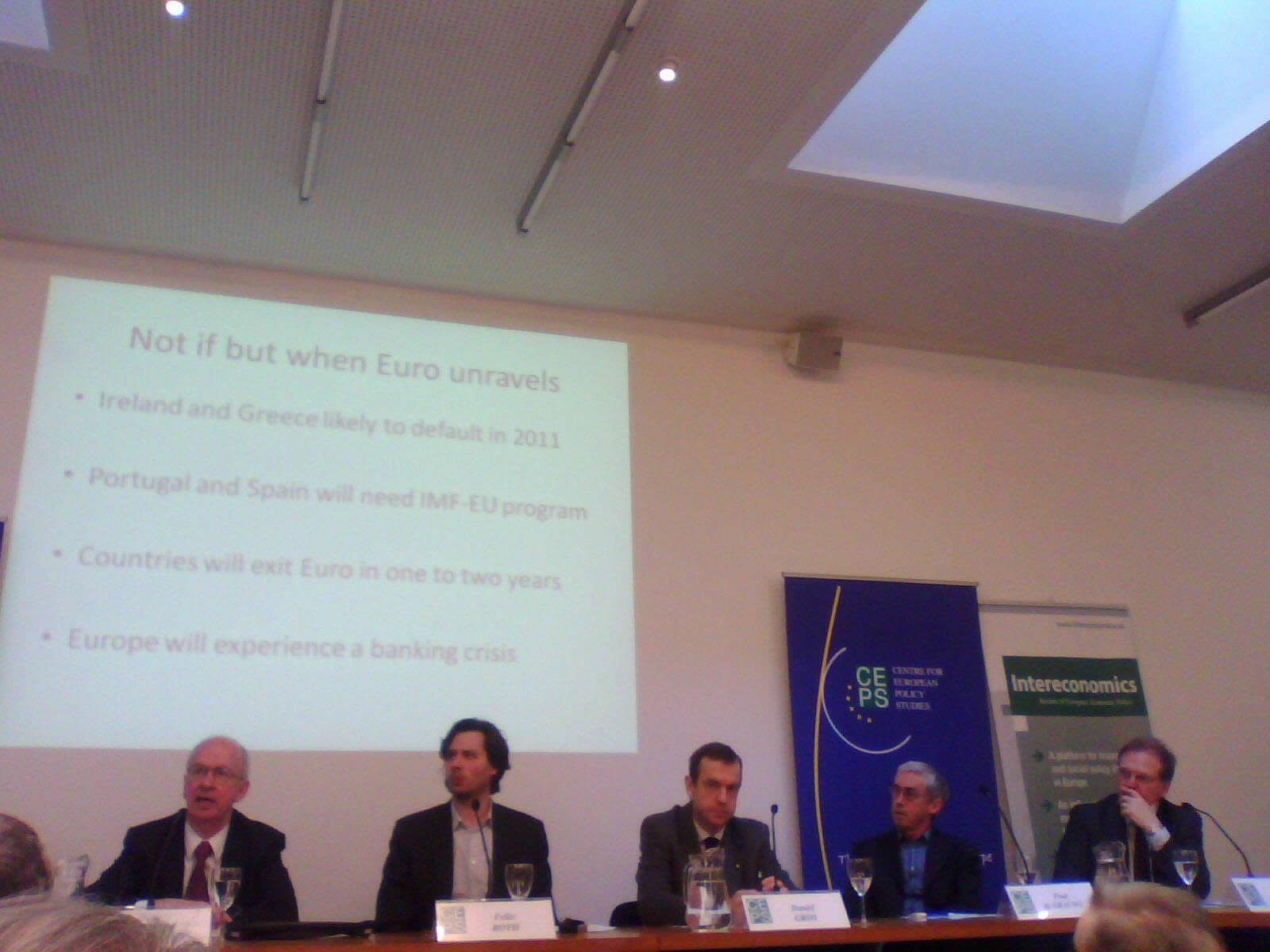
Speakers from Intereconomics, CEPS, American Enterprise Institute, Rheinisch-Westfalisches Institut fur Wirtschaftsforschung (RWI) and London School of Economics and Political Science not only explained policies and (not desired) progress, but also assessed the challenges ahead in order to secure the euro currency from collapse.
